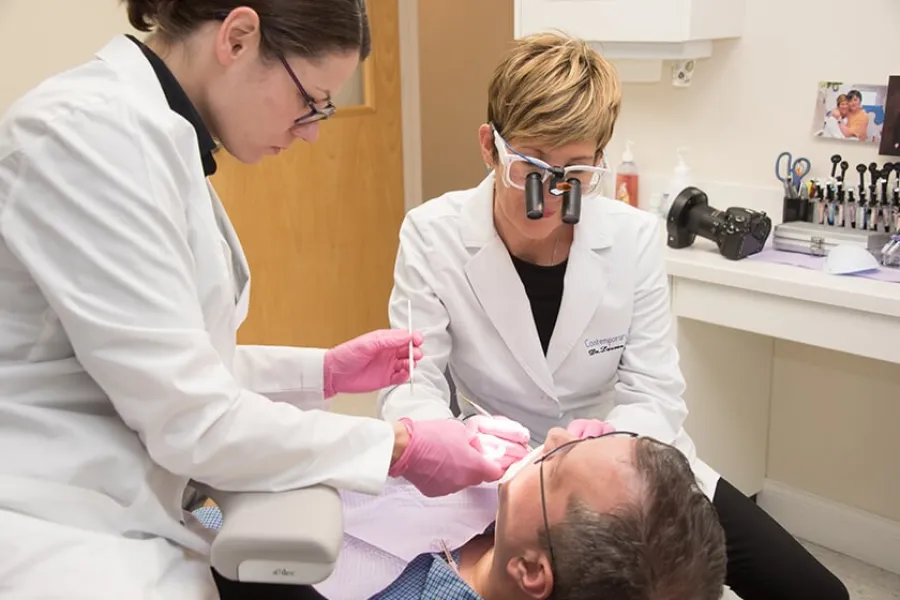
Crafting Confident Smiles Every Day
At Contemporary Dental Arts, we combine exceptional expertise with genuine compassion at every visit. Come here to enjoy modern technology, anxiety-friendly care, and a beautiful view of Mount Mansfield.
Meet Your Dentists in Williston, VT

Lauren Shanard DDS, AAACD

Luciana Flores, DDS

Cosmetic Dentistry

Orthodontics

Restorative Dentistry
Find the Right Dental Solutions

Discover Your Most Confident Smile
At Contemporary Dental Arts, you'll experience a higher standard of dental care. Your dentists possess exceptional qualifications. Dr. Shanard is the region's only AACD (American Academy of Cosmetic Dentistry) Accredited Cosmetic Dentist, a distinction requiring five years of rigorous evaluation. You'll benefit from her expertise in smile enhancement. We also use advanced technology, including digital impressions that replace uncomfortable molds and 3-D imaging for precise treatment planning.
You'll love our calming environment. Our relaxing treatment rooms have serene mountain views on a clear day. Plus, our team treats you with the attentiveness you deserve. You'll notice the difference in our personalized approach from your very first visit. We listen carefully to your concerns and goals, creating treatment plans that address both immediate needs and long-term oral health. If dental anxiety has kept you away, oral sedation is available for additional comfort. Call today to schedule your visit with your dentists in Williston. Join our family of satisfied patients!
Common Questions About Our Practice
Are you accepting new patients?
Yes, we're welcoming new patients into our dental family! We love meeting new people and helping them achieve their smile goals. Our team will make your first visit comfortable and thorough, taking time to understand your unique needs. You can easily schedule your initial appointment by calling our office.
What qualifications do your dentists have?
Our doctors bring exceptional credentials to your care, with a combined 58 years of clinical experience. Dr. Shanard is an Accredited member of the American Academy of Cosmetic Dentistry. She is the only one in Vermont and surrounding states and one of fewer than 500 worldwide. Dr. Flores holds specialized certifications in orthodontics and advanced general dentistry. Both doctors are highly trained in implant placement and stay current with continuing education. You can trust your smile to our extensively trained, experienced team.
How do you determine the best treatment plan for my needs?
We develop personalized treatment plans through comprehensive examination and consultation. You'll receive detailed digital imaging including photographs, X-rays and, when needed, 3-D scans. We take time to discuss your goals, concerns, and priorities for your dental health. Our dentists collaborate to provide multiple treatment options when appropriate. You'll never feel rushed or pressured as we help you make informed decisions about your care.

